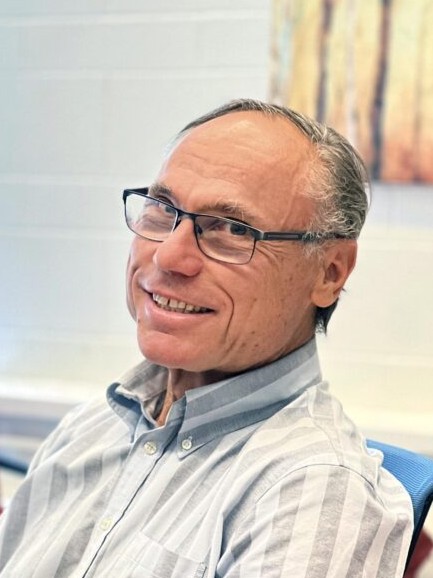|
|
Associated Experts
Porewater Solutions will bring in world-renowned experts to help with projects on an as-needed basis, including university professors, remediation contractors, and other consultants.
| Dr. Brent Sleep, Professor Emeritus in the Department of Civil and Mineral Engineering at the University of Toronto |
 |
Brent Sleep is Professor Emeritus in the Department of Civil and Mineral Engineering at the University of Toronto. His research group conducts hybrid research with laboratory experimentation, field studies and computer modelling to determine the fate and transport of organic chemicals in the subsurface and surface aquatic environments.More specifically, his research is dedicated to developing innovative methods for remediation of soil and groundwater contamination, with a focus on organic contaminants. His research group works on a variety of in-situ subsurface remediation methods, including bioremediation, thermal remediation, and applications of chemical oxidants and nanoscale zero valent iron for subsurface remediation. His group has also investigated the transport of pathogens in fractured rock aquifers. Professor Sleep has a BASc and Meng in Chemical Engineering and a PhD in Civil Engineering, all from the University of Waterloo. |
| Dr. John Holbrook, Professor at Texas Christian University |

|
John Holbrook is a Professor in the School of Geology, Energy and the Environment and the Energy Institute at Texas Christian University. He previously served as a Professor at University of Texas at Arlington and Southeast Missouri State University. His research interests are field oriented, focusing mostly on both modern and ancient fluvial systems and physical stratigraphy. Current interests include controls on permeability trends and connectivity of flow paths in sediments, quantifying fundamental sedimentary processes at small and large scales, preservation of modern processes in the stratigraphic record, and tectonic and climatic impact on rivers. He applies his research widely across petroleum, geothermal, and environmental issues and is well published and well cited in each of these fields. He gained his B.S. at the University of Kentucky, his M.S. at the University of New Mexico, and his Ph.D. at Indiana University, all in Geology. |
| |
He chairs the NSF Research Coordination Network for research in geothermal energy from sedimentary basins. He has served on several committees at SEPM, GSA, and AAPG. He is a past member of GSA Council, past Chair of the GSA Sedimentary Geology Section, and is a GSA Fellow. He has served SEPM on SEPM Council and as President of Gulf Coast and Mid-Continent section, and he teaches short courses and serves/chairs committees for AAPG. He served as vice chair on the Board of GeologistRegistration in Missouri. |
 |
| Steve Livingstone, M.Sc., P.Geo. |
 |
Stephen Livingstone, M.Sc, P.Geo. is a Principal Hydrogeologist and serves clients across industry and government sectors with over 30 years of experience managing multifaceted environmental projects requiring innovative and novel approaches. Stephen brings deep expertise managing hydrogeological studies, environmental assessments, preparing remediation action plans, contaminant fate and transport evaluations, computer modeling, complex site remediation, site specific risk assessment projects, strategic environmental policy and management systems across Canada and internationally. Stephen is a licensed member of the Association of Professional Engineers, Geologists and Geophysicists of the Northwest Territories and Nunavut and Professional Geoscientist in Ontario and Professional Association of Engineers and Geoscientists of British Columbia.
His work has included the assessment, evaluation, risk management and remediation of soil, groundwater, surface waters and sediment contamination from military sites, chemical storage facilities, factories, brownfield sites, railway yards, landfills and mines. Mr. Livingstone has managed high profile and complex sites in Ontario, Atlantic Canada and Northern Canada including hazardous waste sites (PHCs, metals, PAHs), radiological impacts (northern uranium route), off-site chlorinated solvent plumes (TCE, PCE, VC and 1-4 dioxane) and “cancer cluster” sites. Mr. Livingstone has worked on numerous DNAPL and LNAPL contaminated sites from assessment to pilot scale testing and implementation of remedial systems. Many of the sites required advanced contaminant groundwater flow and transport interpretations and modeling. His team received an “Award of Recognition” for hard work and dedication from Aboriginal Affairs and Northern Development Canada for the Axe Point Military Site Remediation and the Colomac Mine Remediation. |
| Dr. Edward McBean, Professor, Canada Chair in Water Supply Security, and Assistant Dean at the University of Guelph |
 |
Ed McBean is a Canada Research Chair in Water Supply Security in the School of Engineering at the University of Guelph. In that context, he relies upon statistical interpretation of data, fate and transport of chemicals and pathogens in the environment, and risk assessment/ management, to determine how features of water supply risk may arise. Hence, there are dimensions of a number of features including climate change and fate and transport modeling as applied to water resources phenomena. In addition to the above, Ed also has extensive experience in waste management, and greenhouse gas emissions as contributory to global climate change. |
| Dr. Paul Van Geel, Professor, Carleton University |
 |
Dr. Paul Van Geel is a Professor in the Department of Civil and Environmental Engineering at Carleton University in Ottawa, Canada. His expertise is primarily focused on the transport and fate of contaminants in the subsurface and on issues related to waste management. This includes flow and transport in the saturated and unsaturated zone; applications vary from gasoline spills (multiphase flow) to biological clogging of biofilters to natural attenuation and redox-dependent biodegradation of petroleum hydrocarbons and solvents. More recent efforts have focused on the fate and transport of PFAS in groundwater and competitive adsorption on in-situ colloidal activated carbon. His research group has also focused on several waste management related topics including; the use of seismic techniques to map the moisture distribution in landfills, life cycle analysis approach to evaluating different waste management strategies and most recently, understanding and optimizing waste stabilization in landfills operated in northern climates. Dr. Van Geel received his B.A.Sc. and Ph.D. in Civil Engineering from the University of Waterloo. |
|
|






